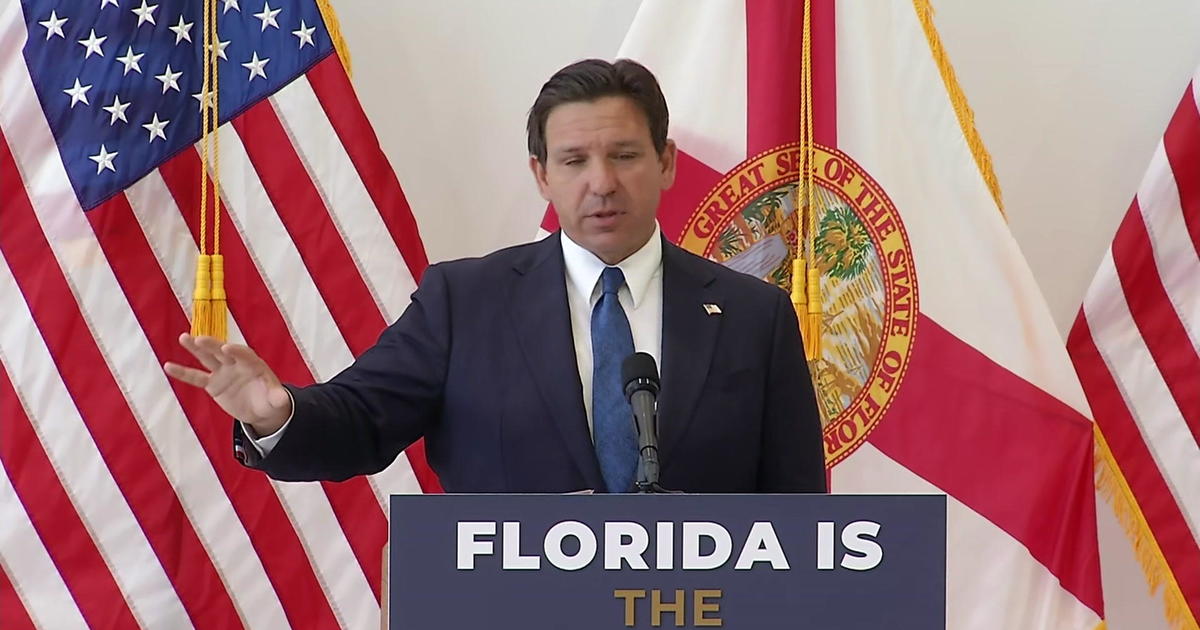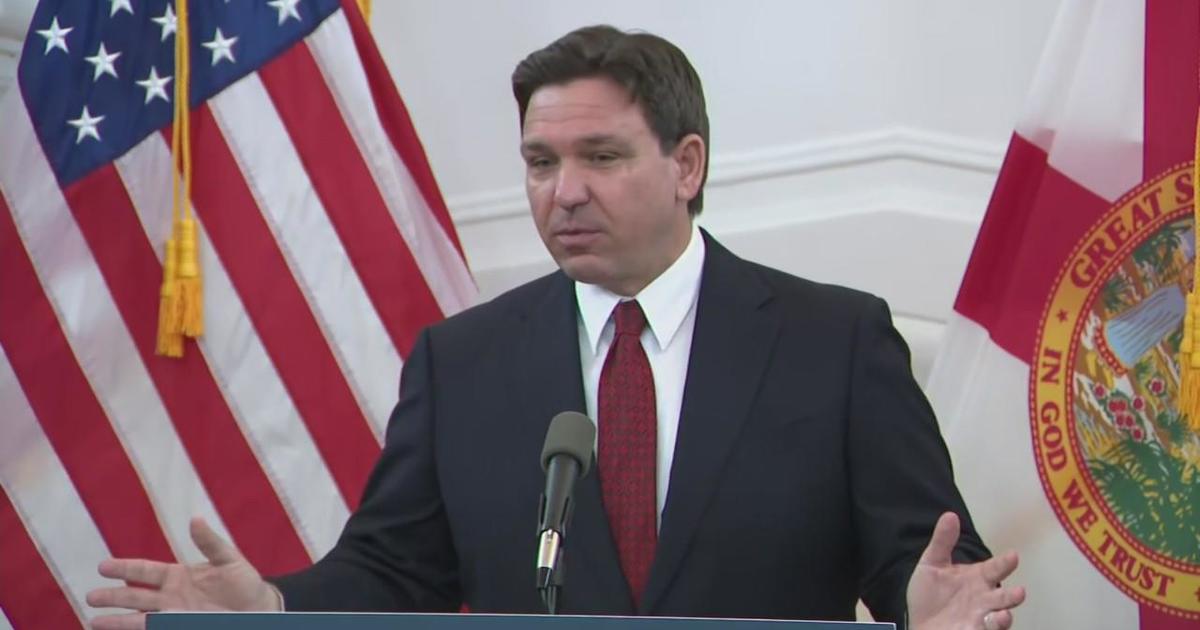House Water Policy Starts To Flow
Follow CBSMIAMI.COM: Facebook | Twitter
TALLAHASSEE (CBSMiami/NSF) -- A new plan to address Florida's water resources got support in a House committee on Wednesday.
Meantime, it continues to draw questions from environmentalists and Democrats.
The wide-ranging water policy is being crafted separately from a plan to carry out a voter-approved constitutional amendment that will require the state to spend hundreds of millions of dollars a year on land and water projects.
The policy, in part, would impose what are known as "best management practices" for natural springs, the Everglades and Lake Okeechobee. Also, it would direct water-management districts to implement a water-management plan across Central Florida.
"My goal is to get the policy right," said House State Affairs Chairman Matt Caldwell, R-North Fort Myers. "Once we get the policy right, then we're going to figure out how to pay for what we need to do."
The State Affairs Committee voted 12-5 to advance the proposal (PCB SAC 15-01), with Daytona Beach Rep. Dwayne Taylor the only Democrat to vote in support.
Taylor said he expects lawmakers will "iron out" most of the issues that continue to draw flak before the proposal reaches the House floor.
"We're not going to be able to fulfill everybody's dreams of making this the exact perfect legislation," Taylor said.
Since introducing the proposal a week ago, Caldwell has met with environmental groups to address concerns. But apprehensions remained Wednesday.
Among changes worked into the proposal over the past week is to include best-management practices from the Department of Environmental Protection for second-magnitude springs. The initial draft had the regulatory process only for larger, first-magnitude springs.
However, the changes removed springs-protection zones, which are designed to regulate the impact of septic tanks and the flow of storm water and agricultural runoff into springs.
House Minority Leader Mark Pafford, D-West Palm Beach, said the bill should represent House leadership's call for a comprehensive statewide water policy.
"Look, at the end of the day, we've got oysters that are dying, springs that are suffering, a Kissimmee River basin that needs more help in depleting some of the phosphorous, nutrients that are going into the lake," Pafford said. "You've got tremendous outcry over the last number of years for the estuaries east and west of the lake (Okeechobee), and you've got a restoration plan for the Everglades that hasn't been completed."
Audubon Florida Executive Director Eric Draper, a lobbyist on environmental issues, said that among the remaining concerns is the lack of an immediate backup plan for water management agencies if the best-management practices, which have yet to be completed, fail to improve water quality.
"What happens if the (best management practices) don't work?" Draper said. "The water management districts don't have the ability at that point to adopt new rules without coming back to the Legislature."
The regulatory best-management practices are about 40 percent completed for the Everglades, while the regulatory requirements have only been set for eight of the state's 33 first-magnitude springs.
Caldwell said the rules for 11 additional springs are expected to be completed later this year.
Ryan Smart, president of 1000 Friends of Florida, said the proposal still needs to address more water conservation.
"Florida has a huge potential for water conservation to meet some of our supply needs going into the future," Smart said. "That's across all sectors, agriculture, public supply, low-flow toilets, better appliances, soil and moisture sensors for ag. It would be great to see some of those elements included in the bill as we look to expand the water pie to also make sure we're using the water as efficiently as possible."
The proposal has drawn support from business lobbying groups, including the Florida Chamber of Commerce and the Florida Farm Bureau.
Brewster Bevis, of Associated Industries of Florida, called the proposal a "thoughtful and comprehensive approach."
"This proposal takes a good first step toward ensuring Florida's water supply is sustainable and available for future generations to enjoy," Bevis said in a prepared statement after the meeting.
The Senate, which offered a springs-protection measure last year that failed to get heard in the House, has yet to release its plan.
Money to implement new policies is expected to be drawn from the "Florida Water and Land Legacy" constitutional amendment, which received the support of 75 percent of voters in November.
The amendment, which directs 33 percent of the proceeds from a real-estate tax for land preservation and water conservation efforts, is expected to bring $757 million for the water and land efforts in the next fiscal year.
How that money will be divvied up remains a separate battle for both chambers.
(The News Service of Florida's Jim Turner contributed to this report.)



